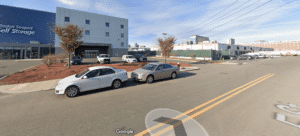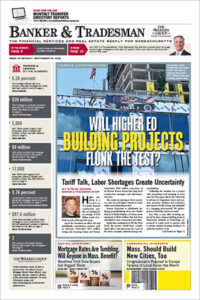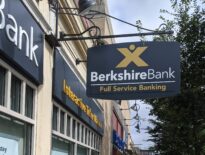Alexandria Real Estate Equities will sell a local development site where it had planned a life science campus because of the softening lab development market, reflecting dampening demand on what was once one of the region’s most desired life science growth clusters.
The nation’s largest life science developer said it recorded a $90.8 million impairment charge on the redevelopment site and will sell it by the end of the year.
“Since our acquisition, the macroeconomic environment has changed. Upon our reevaluation of the project’s financial outlook and its alignment with our mega campus strategy, we decided not to proceed with this project,” Alexandria stated in its third-quarter earnings report.
Alexandria did not specify which properties are included beyond describing them as self-storage and industrial parcels. In 2020, Alexandria paid $168.5 million to acquire the nearly 6-acre 380 and 420 E St. parcels in South Boston. They currently are occupied by a self-storage facility and trucking terminal.
An Alexandria spokesperson did not immediately respond to an inquiry.
Mirroring trends in many of Greater Boston’s lab submarkets, vacancies in the Seaport District have shot up in the past 12 months amid a sharp decline in real estate expansion by biotechs and big pharma alike.
Local companies have continued to add inventory in sublease listings, including 11 that listed space in the third quarter, according to a CBRE report.
The 5.1-million-square-foot Seaport submarket currently has a 36.5-percent availability rate and a 5.8 percent direct vacancy rate, according to CBRE. Since Jan 1, the submarket has nearly 196,000 square feet of negative absorption, and now has recorded negative absorption for five consecutive quarters, CBRE reported.
Asking rents have fallen 5.2 percent from all-time highs and ended the third quarter at $105.96 per square foot on a triple-net basis.
Alexandria owns 75 properties in Greater Boston totaling nearly 13.2 million square feet, representing 28 percent of its total portfolio.









